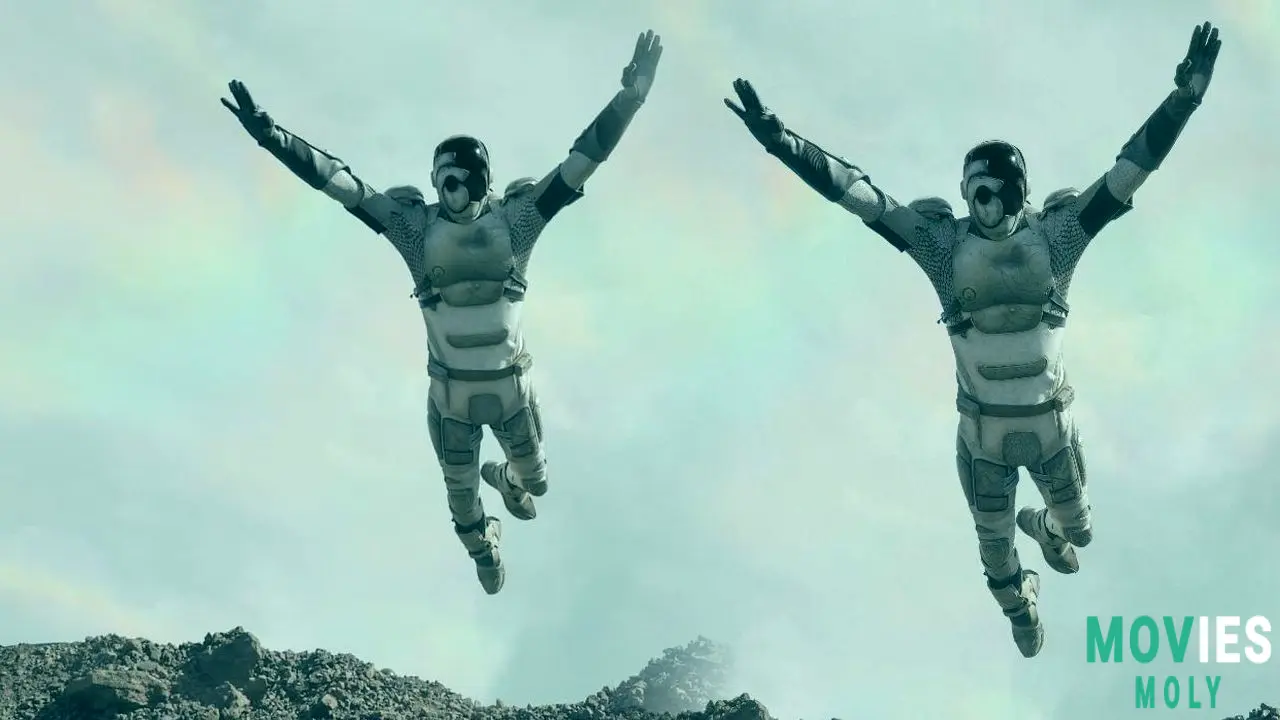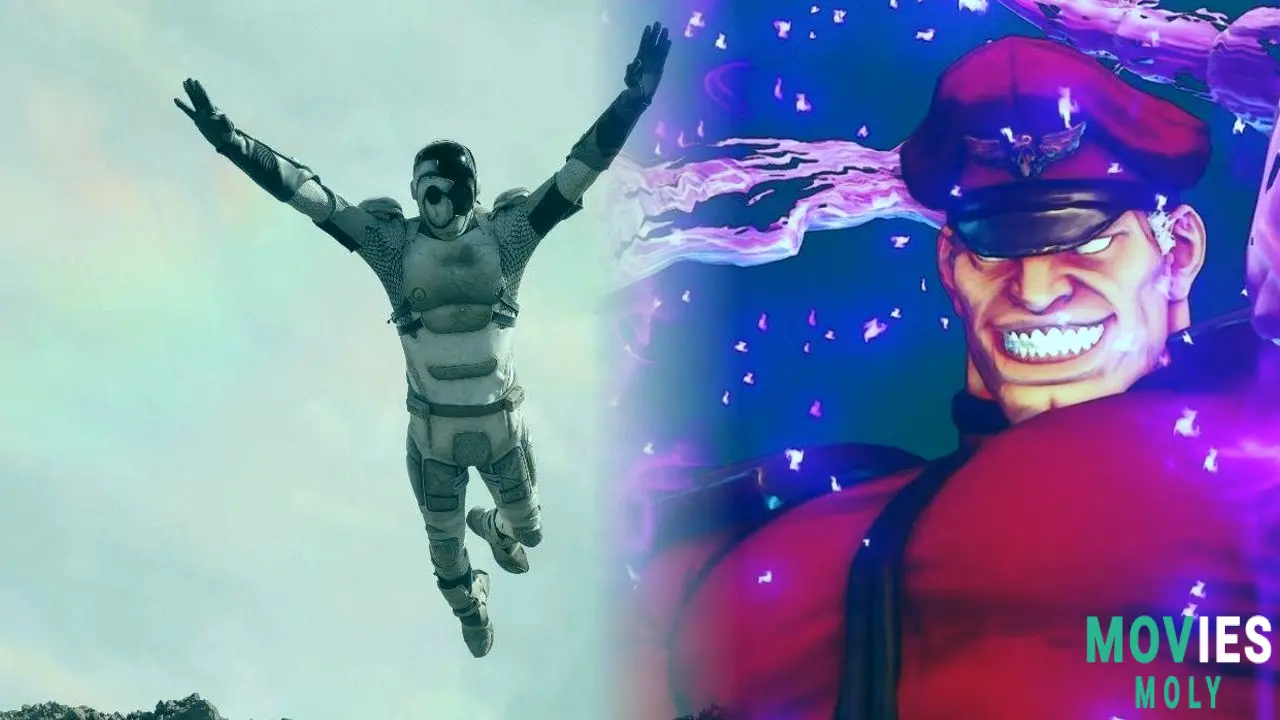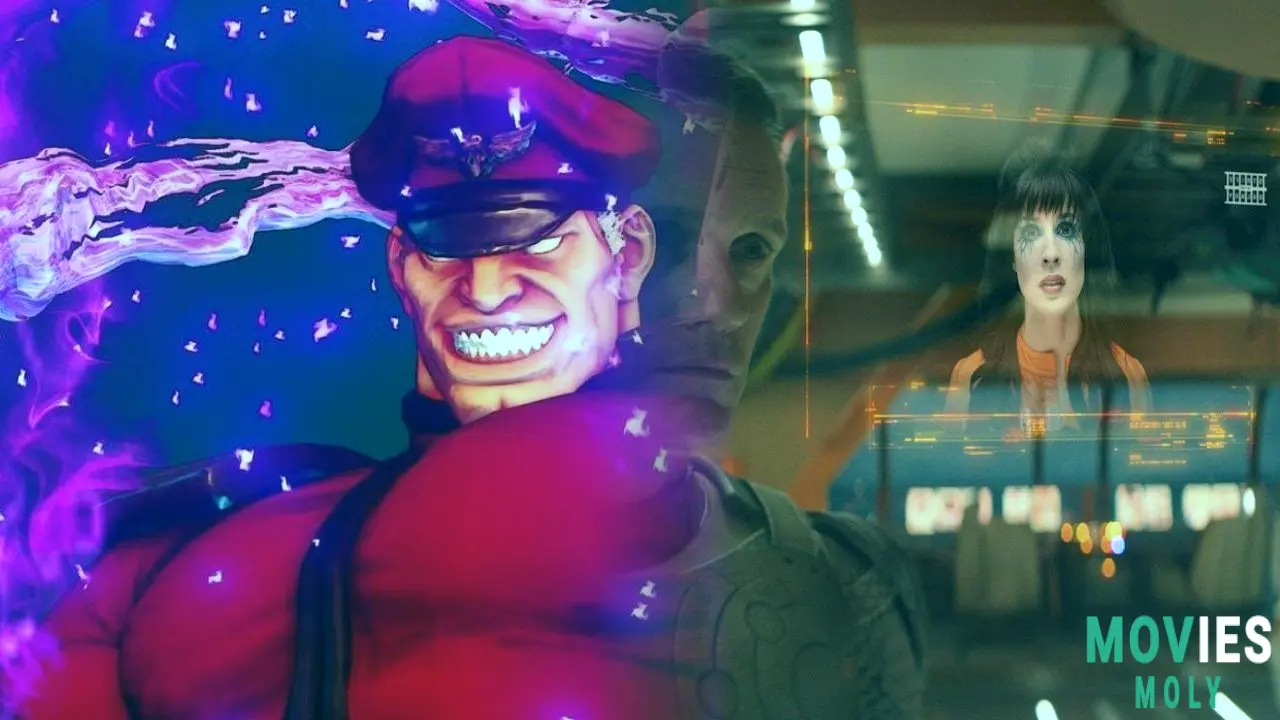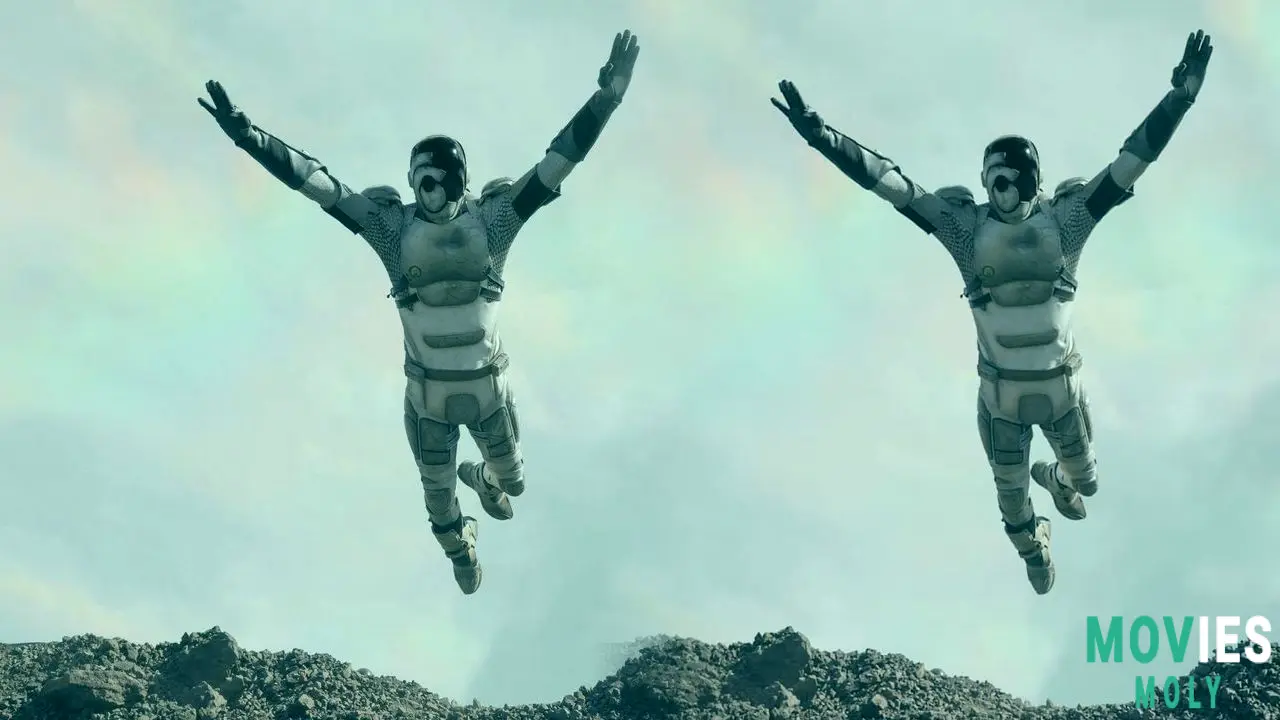Let's be clear: Murderbot is not intended to care. That has been the beautiful point of our favorite sardonic SecUnit since the first episode. Yet here I am, tissues in hand, absolutely undone by an automaton who prefers to binge-watch soap operas rather than express emotions. Episode 9, "All Systems Red," is not only the most action-packed episode in the series, but it also serves as the emotionally charged turning point that the entire season has been waiting for. Murderbot, starring Alexander Skarsgård, is a tragic and transformative film that changes everything.
For eight episodes, the show brilliantly addressed Murderbot's unease with human interaction, using Sanctuary Moon motifs as emotional armor. That emotional distancing is broken as Murderbot practically pushes itself off a cliff to save Dr. Mensah (Noma Dumezweni). I gave a gasp. I grasped my metaphorical pearls. Suddenly, this construct that claimed to want nothing more than solitude performed the most human thing possible: it sacrificed itself for someone else, whispering "My clients are the best clients" as its systems failed. It wasn't simply heroic; it was the exhilarating, messy conclusion to a journey that begged for this exact stomach strike.
Why MurderBot's Facade Needed to CrumbleMurderbot's final lie is to itself.
Think back to episode one. Murderbot spoke with the PreservationAux crew with barely suppressed displeasure, its inner monologue rife with criticism regarding their bodily functions and inefficiencies. In Episode 9, separation is destroyed by desperate deeds rather than big words. When it hunches over Mensah, absorbing the full power of the explosion and the crushing cliff fall, it represents the ultimate rejection of its carefully produced narrative of indifference. The phrases from Sanctuary Moon: Rise and Fall are sweet, but they also serve as a shield. This episode tears the shield away.
Its emotional collapse is prompted by a paradox: the people on Murderbot's favorite show represent the heroism it purports to reject. MurderBot urgently tries to take their screenplay, exclaiming "Boldness is all!" during its stressful negotiation with GrayCris, but the borrowed confidence wears thin (and comically blows its cover). When an actual crisis occurs, however, there is no script. Only instinct. True courage comes from Murderbot, not from the rehashed phrases of Sanctuary Moon characters. The mask comes off, revealing the terrible depth of connection that it had spent a planet-threatening crisis suppressing.
PreservationAux demonstrates that there's more at stake than data.

This isn't only about survival anymore.
Before this episode, Murderbot was more of a character study wrapped in sci-fi packaging than an action program. However, "All Systems Red" makes excellent use of that base. The frenetic plan—Gurathin (David Dastmalchian) hacking the beacon, Pin-Lee's (Sabrina Wu) inadvertent wrench murder ("Murderbot: Episode 9" tackles bleak humor masterfully), and Mensah's risky gambit—is more than simply spectacle. It causes each character, particularly Murderbot, to confront their values. It's simpler to be skeptical about human messiness when you're not actively attempting to keep people from being burned.
The program brilliantly stripped back PresAux's scholarly detachment, layer by layer. Mensah has asked Murderbot to care after her children if she dies. Gurathin's expression of growing terror as the SecUnit turns off, silently shouting "Not like this!" These aren't coworkers in danger; they've found family, a status brutally reinforced by Murderbot's final sacrifice. If previous episodes had us laugh at Murderbot's displeasure, this one made its hesitant devotion palpable via shared horror.
Episode 9 masterfully utilizes the novella for more payoffs.

GrayCris Became More Than Corporate Cannon Fodder.
Devotees of Martha Wells' story will know the main beats: parley, beacon, and sacrifice. However, the television adaptation gives important flesh to the bones. Rita (Amanda Brugel), the GrayCris negotiator, is more than just a generic villain; her caustic contempt for Sanctuary Moon provides Murderbot with a relatable, human(ish) enemy to bounce off of, making its improvisations ("Clasp hands?") both tense and darkly humorous. While the novella alluded to Murderbot's internal strife, the program pushed it to the forefront.
Mensah's expanded responsibility greatly intensifies the sacrifice. MurderBot protects a character in the book, but the TV version is more effective because it is Mensah - PreservationAux's moral center, the leader who originally believed in the organization's sovereignty. Her status as a Planetary Administrator was more than merely mentioned; it became a source of friction during the negotiations. Seeing her regality shatter and tears stream down her injured face as Murderbot fades? It solidified the emotional stakes that the literature hints but the program dared to highlight. Crucially, instead of rushing this climax action, it is stretched out over a full episode, giving the emotional repercussions the breathing room it need.
How Episode 9's Ending Already Transforms Season One

Murderbot chooses to care, and everything changes.
The most wonderful component of the penultimate hour? Murderbot's sacrifice causes everyone, including the audience, to critically reconsider the nature of constructs. Prior to the cliff fall, PreservationAux regarded MurderBot as invaluable, but possibly mostly as impressive technology. Gurathin, in particular, exhibited a hesitant curiosity. Seeing the damaged, twisted metal and darkened optics, is it putting Mensah's life ahead of its own function? That challenges prejudices. Protecting was not a protocol; it was a choice.
This permanently modifies MurderBot's trajectory for the finale. Following this moment, the novella All Systems Red comes to an end fast. However, the series has emphasized connections that the novel does not address. Sending Murderbot into its season finale severely damaged has massive consequences: Preservation's immediate efforts to save it will be difficult, Gurathin's conflict must be resolved, and Murderbot faces the terrifying reality of reawakening after publicly revealing its metaphorical - and now literal - heart. The consequences of its decision cannot be buried behind media marathons this time.
Did the action scenes wobble at times? Perhaps. Were some of Murderbot's expository lines awkward while navigating the plot? Sure. However, dwelling on it blinds you to the bigger picture. By breaking Murderbot's carefully built apathy with a single, devastating leap into the unknown, Episode 9 provided the critical spark that the entire season need to reach its full potential. It removed the governor module from the show's emotional heart as easily as Murderbot hacked its own. Murderbot was never just about survival; it was always about connection, no matter how hard our favorite SecUnit fought it. This terrible, triumphant episode brought the reality into the spotlight, laying the groundwork for a conclusion that promises not only answers, but transformation. MurderBot premieres new episodes every Friday on Apple TV Plus.




